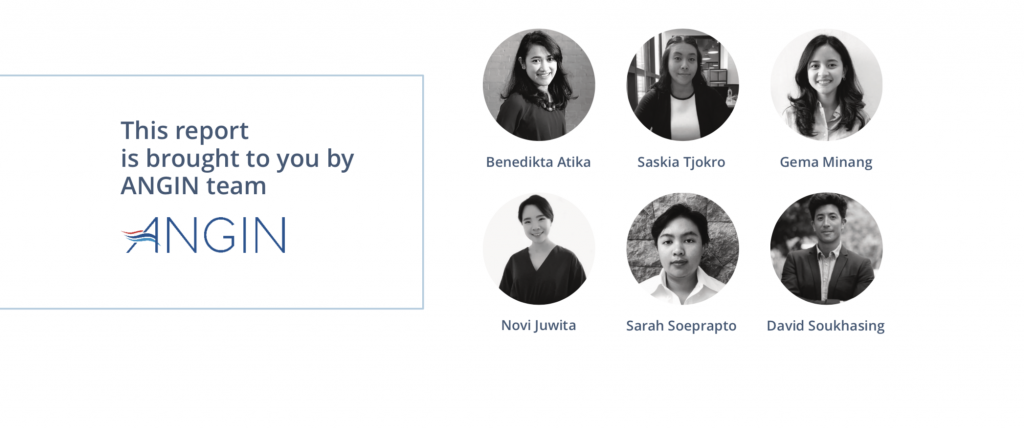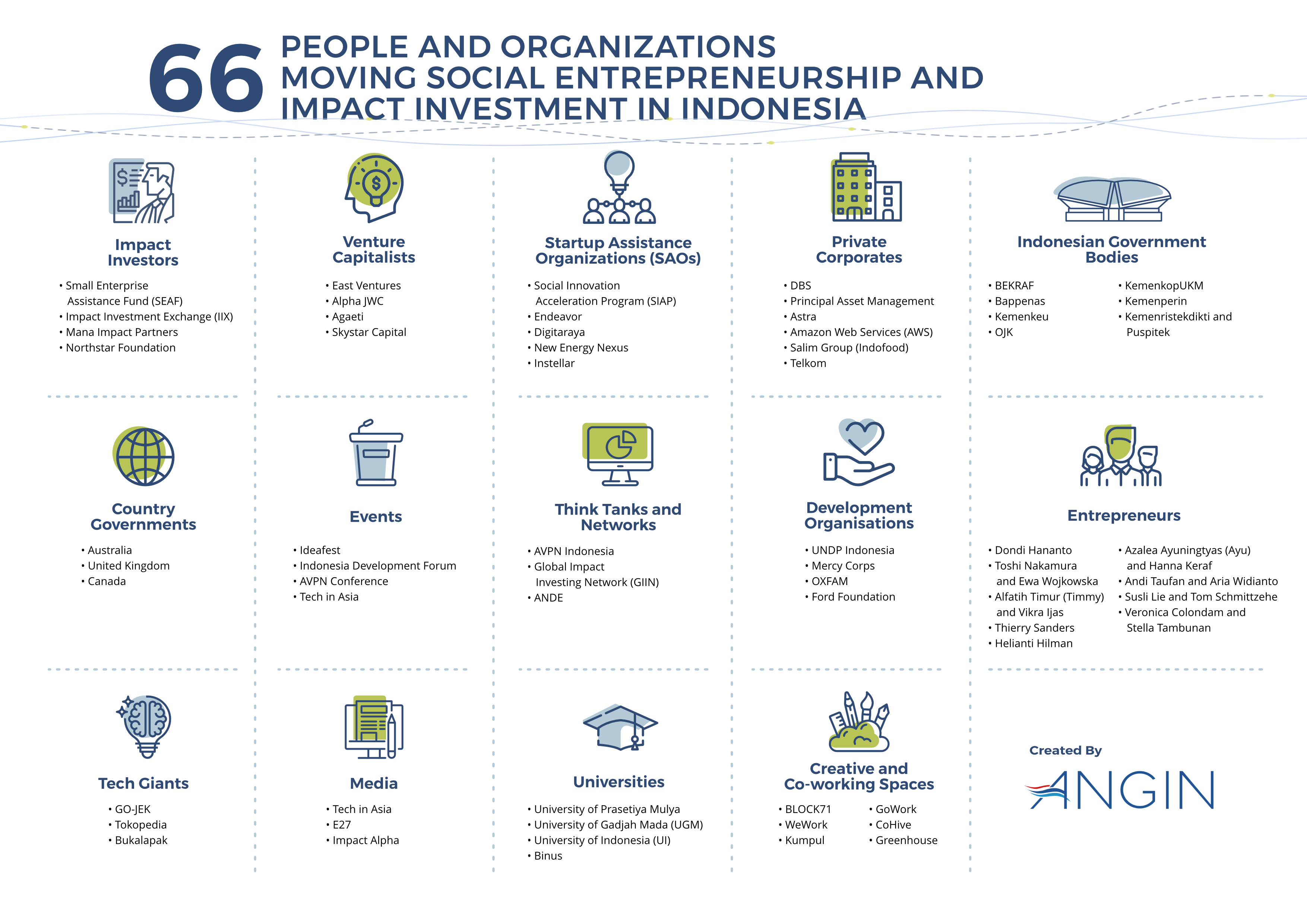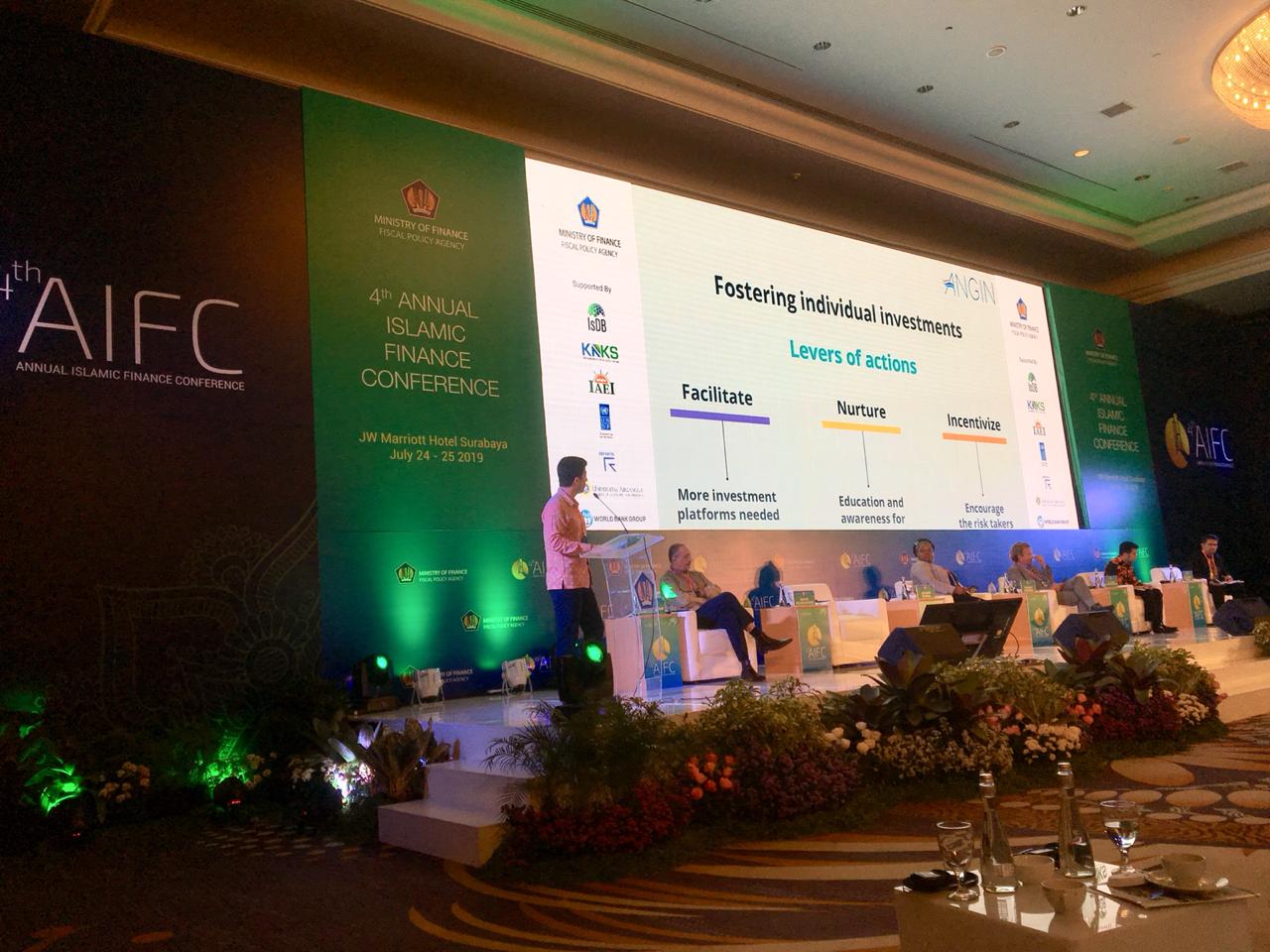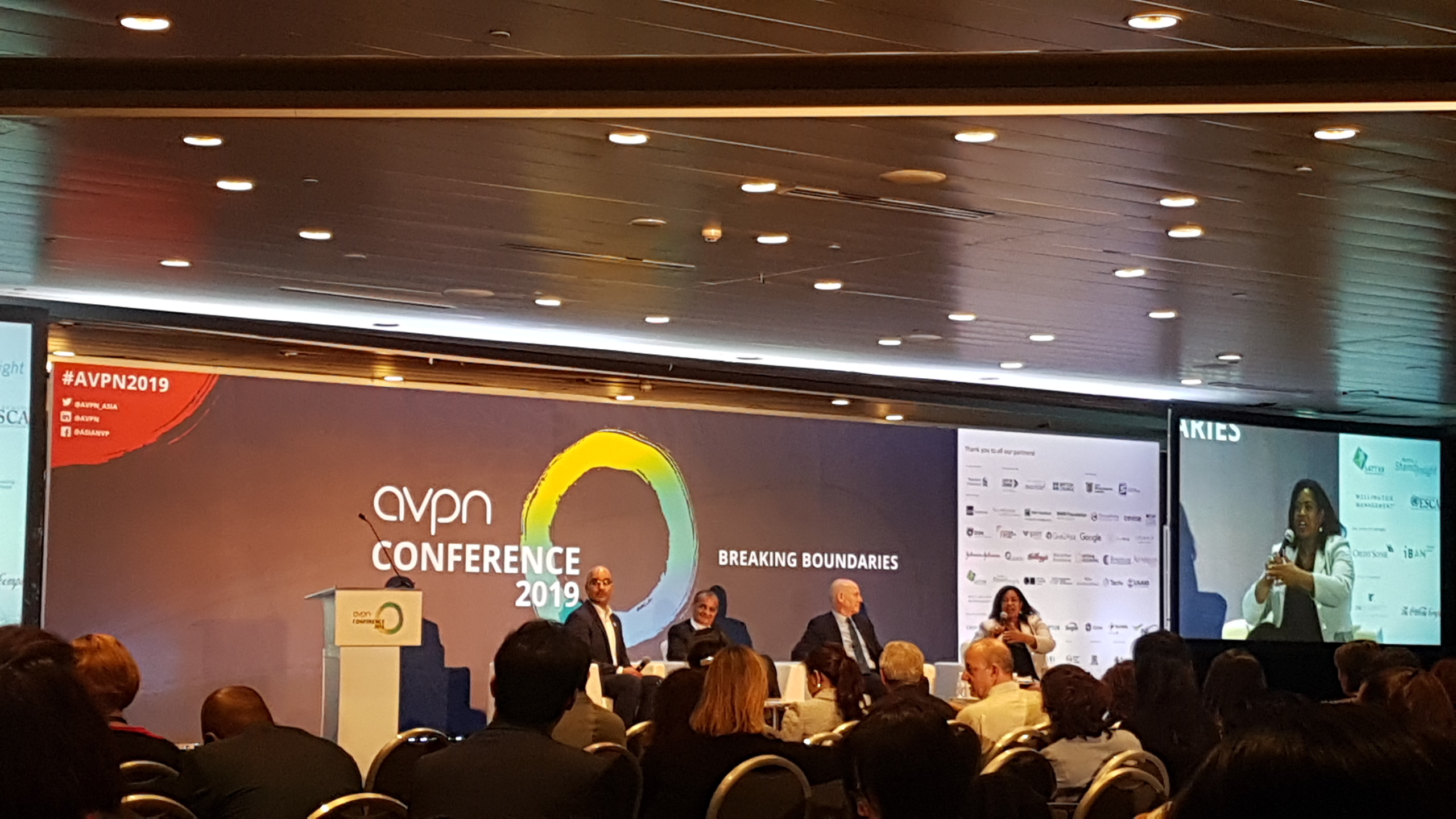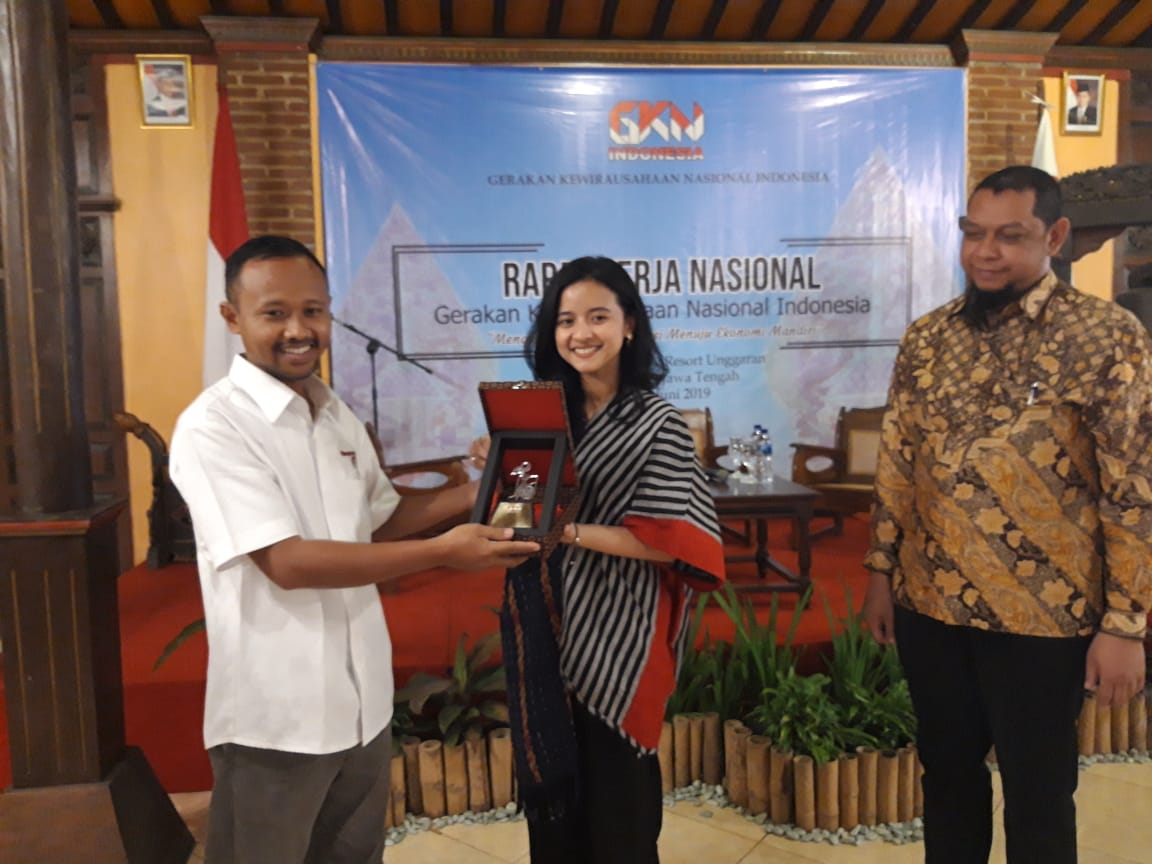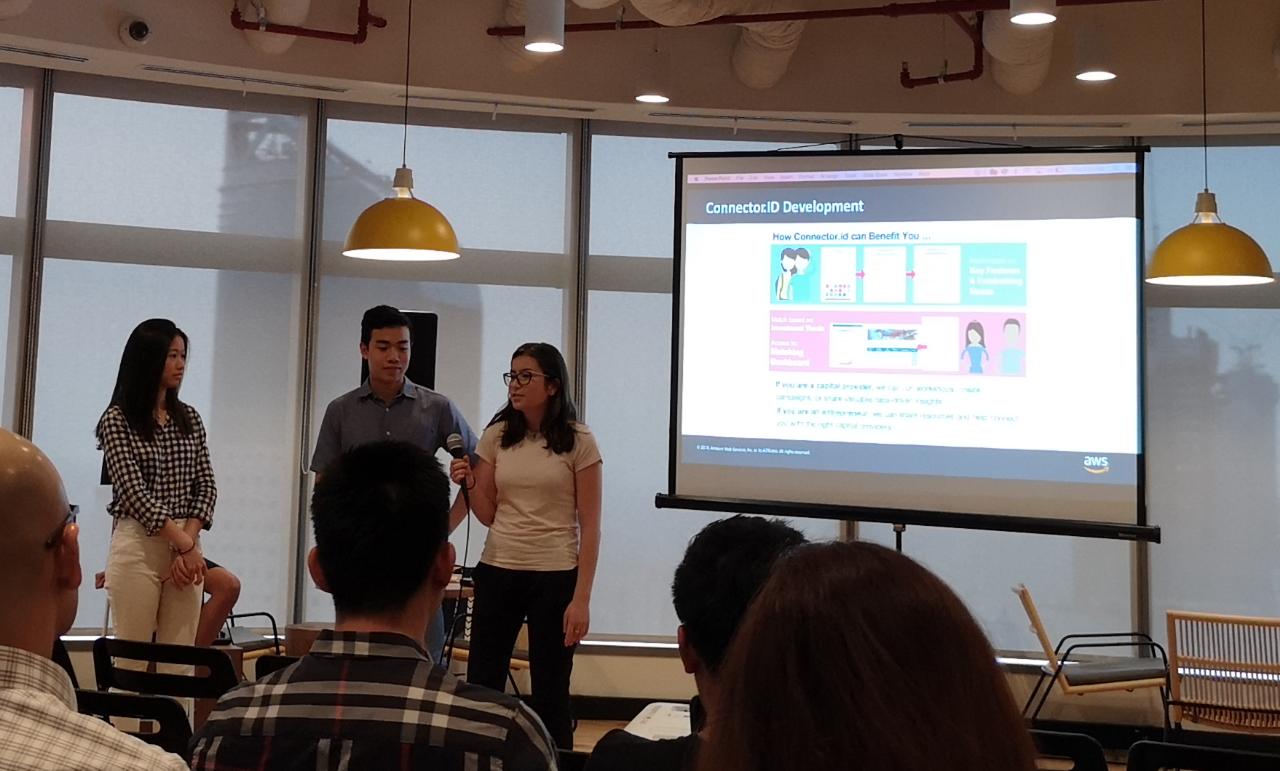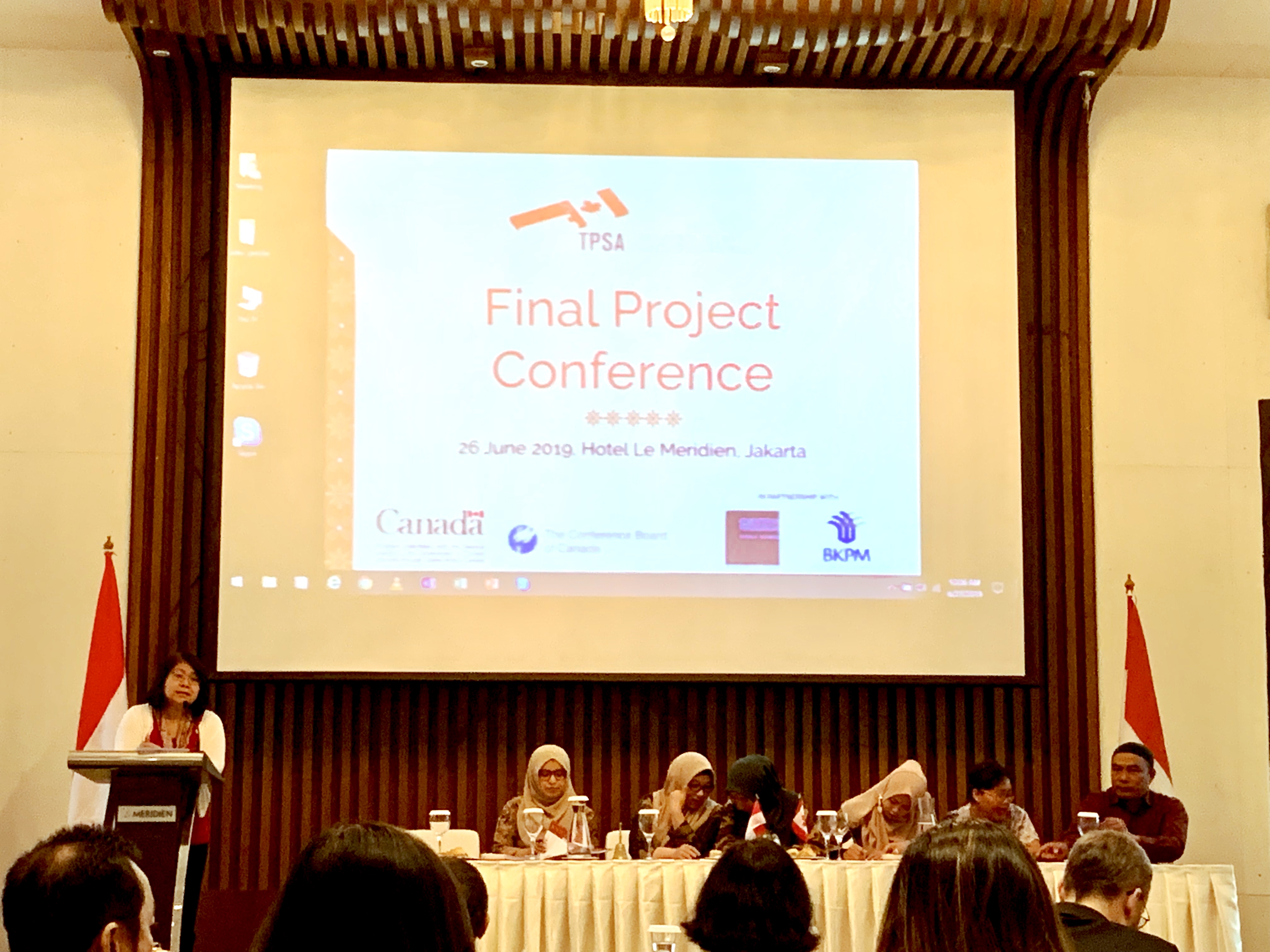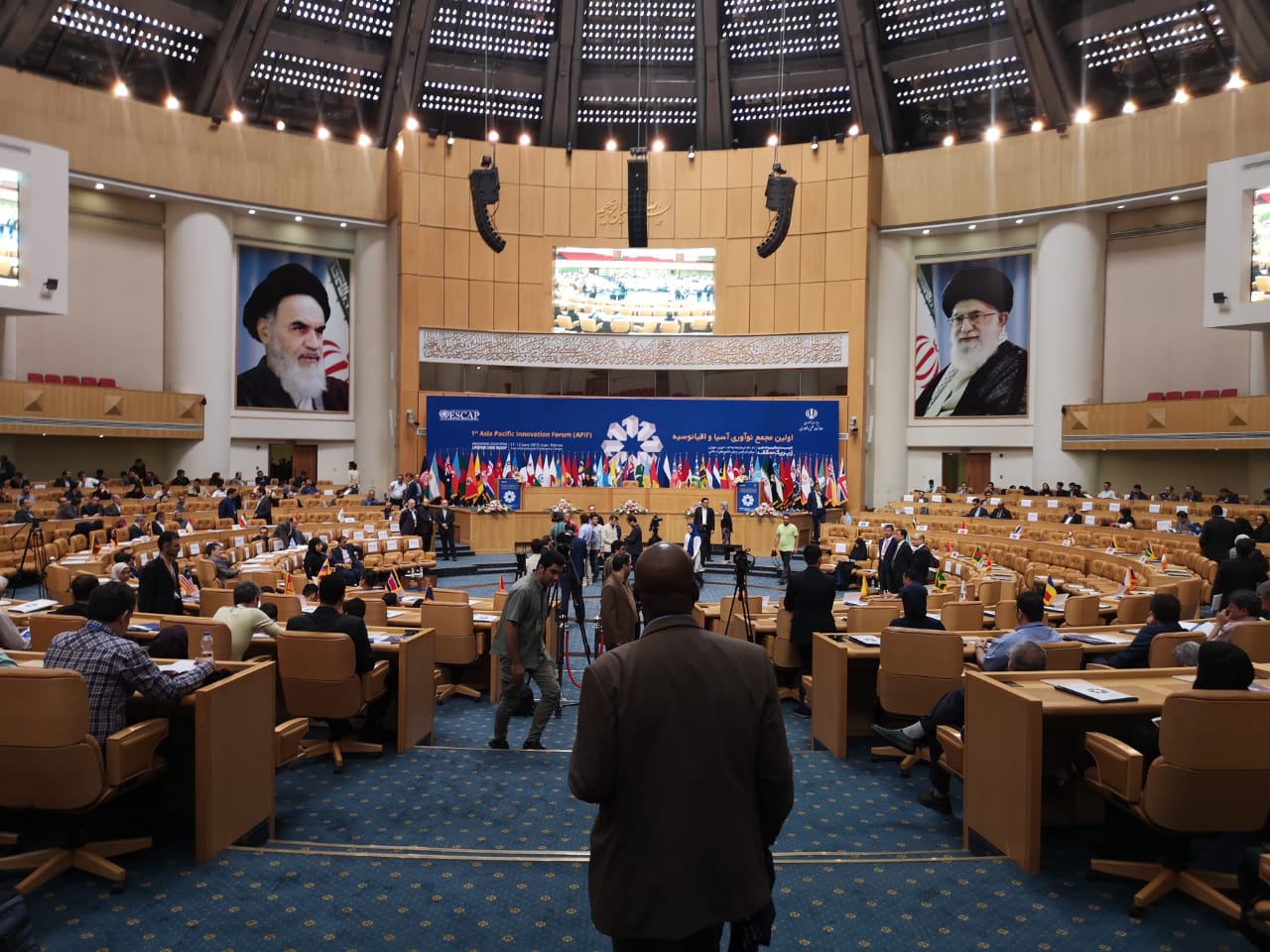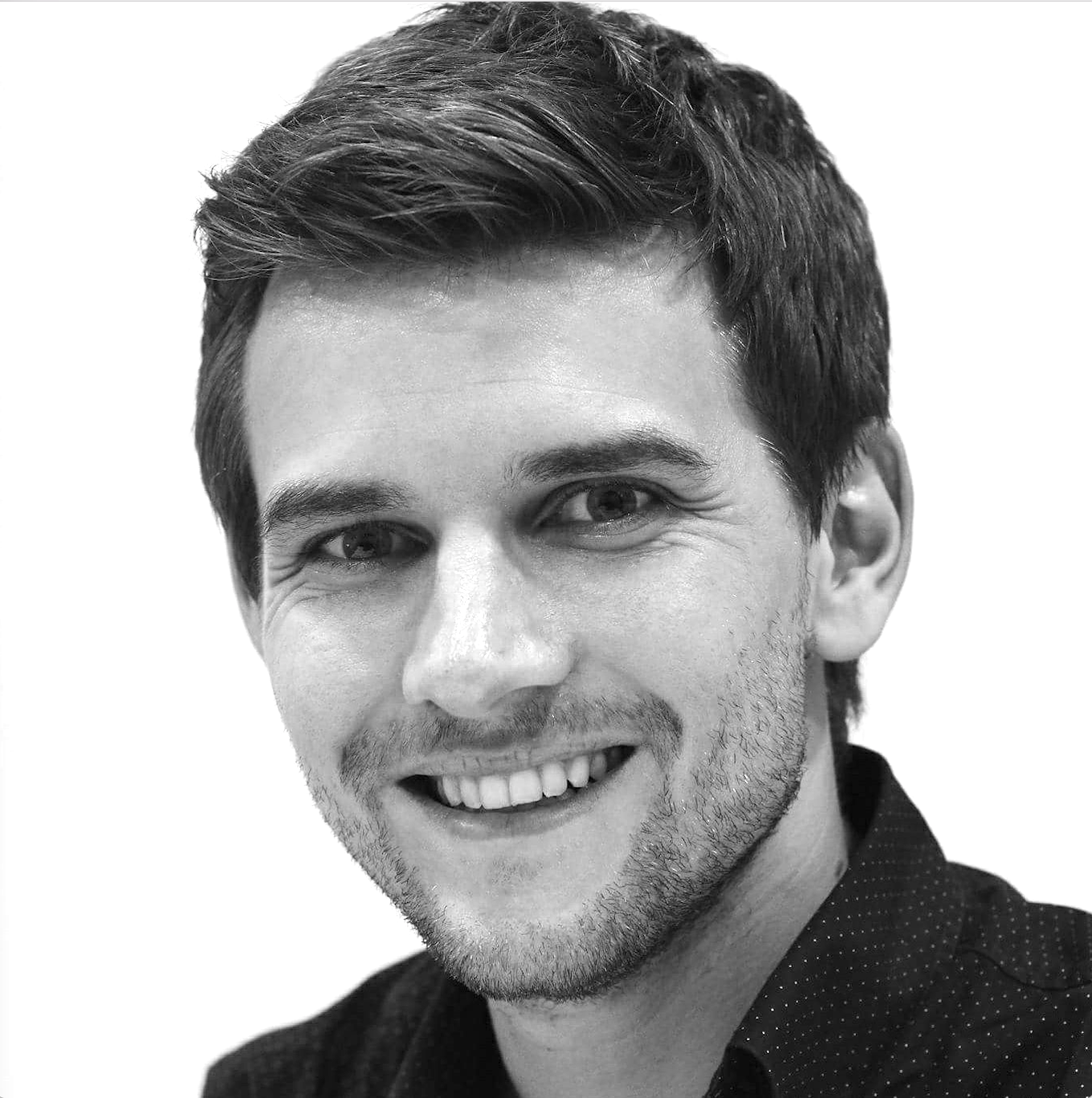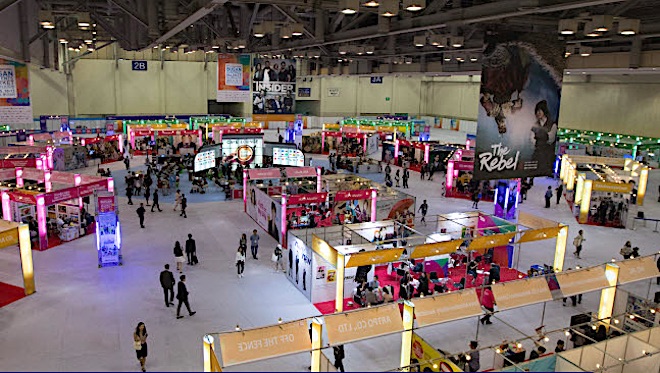Disclaimer: This research is clearly subjective and reflects ANGIN’s team opinion which is based on our interaction and observation over the past few years, with a strong focus on what was going on since July 2018. The objective of this list is to act as a starting point to bring more clarity on the impact investment and social enterprise ecosystem. We have for sure missed several high contributors and change makers but we have to be focused on highlighting the stakeholders who come instinctively to our mind.
2nd Edition: Who is shaping the social enterprise and impact investment space in Indonesia?
To follow up on the 2018 edition and excited by the enthusiasm our list generated, here is the 2019 edition of the key players who are highly contributing to the development of social entrepreneurship and impact investment in Indonesia. These are the people and the organizations you should definitely meet if you are exploring the Indonesian impact market, need insights and advise to play in the country. We have updated our 2018 list to reflect the changes in the ecosystem as new players are coming, some organizations are not active anymore, less active or changed their focus.
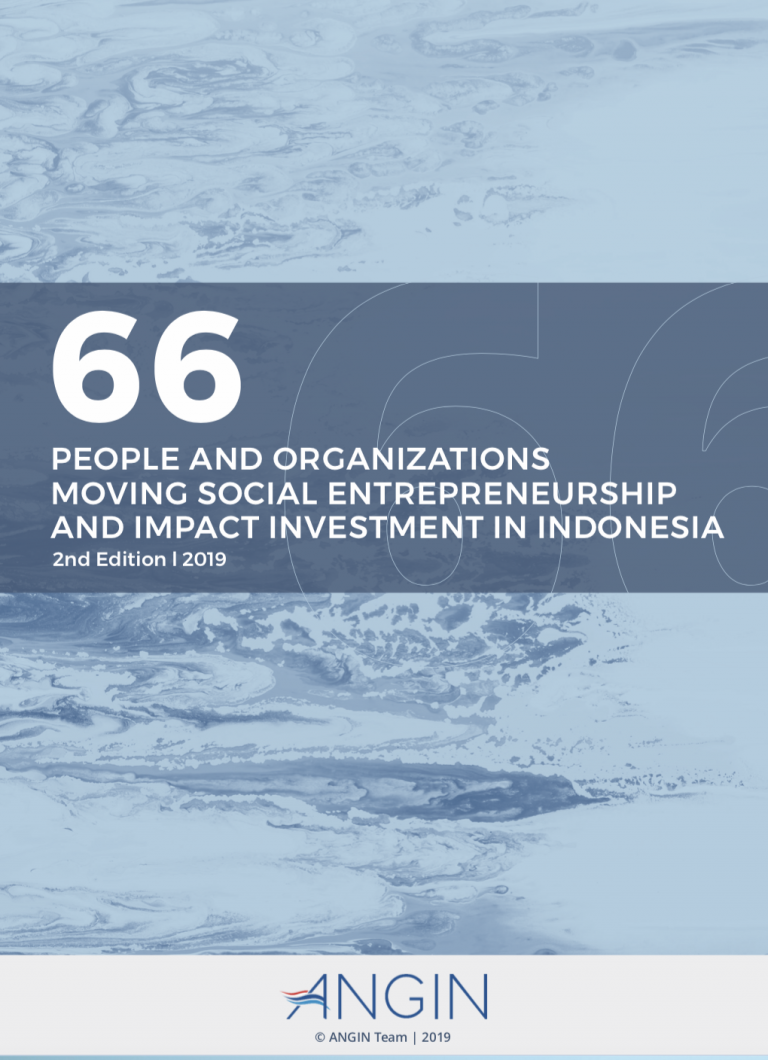
Download Our Report:
People and Organizations Moving Social Entrepreneurship and Impact Investment in Indonesia
These investors aim for both financial returns and impact outcomes. While not the most active category of investors in financing the Indonesian SDG, they have solid access to pipelines, some have deep expertise in certain verticals (e.g. agriculture, education, healthcare). They look beyond technology companies which is great if you are interested in learning more about SMEs. A great source of knowledge for you!
- Small Enterprise Assistance Fund (SEAF)
SEAF provides capital and business assistance to Small Medium Enterprises (SMEs) in the emerging market. It partners with DFAT Australia to support women entrepreneurs by launching SEAF Women’s Opportunity Fund. This fund aims to achieve gender inclusion in SMEs.This year, it announced its investment in BEAU Bakery, a leading local artisanal bakery and café founded by Talita Setyadi. Contact Katharina who is in charged for SEAF Indonesia.
- Impact Investment Exchange (IIX)
Based in Singapore, IIX is one of the early names in the impact investment space in Southeast Asia. It is operating several offerings such as investment products (bond, broker role), development consulting (research, impact assessment) or even online classes. Over the last few years it has been more active in the field of gender lens investment and women empowerment through the support of the Australian at DFAT. It has made some investment in Indonesia including Krakakoa, a bean-to-bar chocolate maker based.
- Mana Impact Partners
Currently based in Singapore and Hong Kong, Mana Impact Partners has been engaged in Indonesian social entrepreneurship through medium- to long-term capital, together with mentorship, expertise and network connections. It invested among others in Nazava and Krakakoa. Talk to Patti to learn more about them.
- Northstar Foundation
This is the venture philanthropic body of Northstar Group, a Singapore headquartered private equity firm. Northstar Foundation has invested in some well-known impact-driven enterprises (Du’Anyam and Electric Vine). It leverages Northstar main team expertise and experience in early stage and private equity. A much needed experience investor for the impact space.
While not necessarily the first players we think of when it comes to financing social enterprises, VCs play a huge role in financing impact ventures that have direct or indirect impact. They usually don’t bother with jargon and don’t use the term social enterprise. They have valuable insights about the nationwide investment pipelines and the outlook.
- East Ventures
No doubt that East Ventures has played a key role in supporting and investing in some of the most impact driven startups. It is probably the biggest impact investor in Indonesia (if we get rid of the “official” definition and look at the capital deployment in social enterprises). Its portfolio of impact companies is impressive, ranging from edutech startups like RuangGuru to Small Medium Enterprise (SME) enablers like Wahyoo and Warung Pintar. Its team is highly active at events and workshops, supporting the social enterprise agenda. The investor to meet in Indonesia.
- Alpha JWC
Alpha JWC is a local Indonesian tech VC with another impressive track record in supporting impact ventures (e.g. TaniGroup) . If you are wondering, JWC stands for Jefrey, Will , and Chandra , the three seasoned partners of the fund. It made the news this year by supporting among others Kopi Kenangan and Goola, two high-growth F&B brands. Don’t miss its partners and great team when you are in town.
- Agaeti
Below the radars, Agaeti is an Indonesian VC firm that has closed several deals in impact companies, including Xurya (a renewable energy investment platform), Warung Pintar, or Wahyoo. Some other notable portfolios are Antler, the Singapore-based startup generator, Coffee Meets Bagel (online dating app), and CoHive. Pandu, its founder, has an impressive pedigree! Check out the team when you are in Jakarta.
- Skystar Capital
Skystar is an early-stage focused VC firm backed by leading corporate groups with access to a wide array of industries. Skystar invested in a number of impact driven companies such as Kudo or Hijup (an islamic clothing marketplace). In total, it has around 20+ portfolio companies operating in both Indonesia and around Southeast Asia.
Here we include incubators, accelerators, and programs designed to help startups and SMEs. Ranging from early stage incubators to programs dedicated to help facilitate IPOs, these organizations are varied in structure, target demographics, and mandates. They are a great resource to identify driven entrepreneurs that take the extra step of committing extra time and resources to hone themselves and their ideas.
- Social Innovation Acceleration Program (SIAP)
Founded by the co-founder of Impact Hub Jakarta, William, SIAP has been helping aspiring and early-stage social entrepreneurs to upgrade their impact solutions and business skills. Between you and us, we have heard good feedback about this program. Supported by DICE program from British Council, it expanded outside Jakarta, e.g. Makassar, Malang, and Solo. Talk to William or Aghnia, usually around Impact Hub!
- Endeavor
This is the place to find the superstar mentors and high impact enterprises, focusing on scaling up entrepreneurs who contribute to the GDP and SDG. Its flagship massive mentoring sessions are always a must to access talents, pipeline, and local networks. Its team is super well connected across the country. Definitely talk to Devina and Dita.
- Digitaraya
Launched in 2017 by Kibar, Digitaraya is one of the prominent SAOs in Indonesia. Key programs have been conducted in partnership with some big names (Google, GO-JEK). Some of them address specific social impact objectives, e.g. NYALA program, a collaboration with New Energy Nexus focusing on renewable energy startups, and APAC Women Founders, a partnership with Simona Accelerator focusing on women-led startups. Speak to Yansen and Nicole to learn more about its activities.
- New Energy Nexus
With strong vision in striving towards clean energy, it supports entrepreneurs to drive innovation through acceleration programs and funding. Headquartered in California, it has now office and team in Indonesia and other countries e.g. China and India. It provides access to global network of ecosystem builders and resources in the clean energy sector. Reach out to Hendrik, Diyanto, or Yeni.
- Instellar
One of the oldest impact players in Indonesia. It supports social entrepreneurs through a mix of cohort-based incubation and acceleration programs, consultancy services and access to network. Refer to Romy or Dian for more information.
In the end, isn’t it all about the entrepreneurs? These are some of the most admired and accomplished Indonesian social entrepreneurs. Grab coffee with these individuals, pick their brains, and be prepared to chat business and impact!
- Dondi Hananto
Dondi is known to be the founder of the first coworking space in Indonesia and one of the dinosaurs in impact investment with Kinara. Dondi is now a Partner of Patamar Capital, a VC focusing on impact-driven companies. He has seen the ecosystem growing and changing and will be for sure the go-to contact on impact investment and the development of entrepreneurship ecosystem in Indonesia!
- Toshi Nakamura and Ewa Wojkowska
Toshi and Ewa are luckily based in Ubud, Bali (we are a bit jealous). Co-founders of Kopernik, an Indonesia-based organization aiming to reduce poverty through consulting and advisory services. They are highly experienced in the last-mile technology, implementing affordable and simple technology innovation to the grassroot community. Additionally, their success in implementing hybrid approach in leveraging philanthropic funds to operate the profit-making activities are a good sample of social enterprises in Indonesia.
- Alfatih TImur (Timmy) and Vikra Ijas
They are the founders of Kitabisa, the leading donation crowdfunding platform in Indonesia. Timmy and Vikra were among the first social entrepreneurs to get funded, and are always seen as a respected inspiration for young indonesians. They are a great source of information on social financing in Indonesia.
- Thierry Sanders
Founder of Mekar, an Indonesia-based peer-to-peer lending platform for SMEs backed by Sampoerna, Thierry is one of the most active foreigners (bule) in Indonesia in this social entrepreneurship space. His previous experience across countries and industries are valuable to help anyone understand the game of impact investment. You will see him often in events invited as key resource.
- Helianti Hilman
Helianti is the founder of Javara, leading premium artisanal products in Indonesia. She has unbeatable knowledge about the agriculture value chain, and was one of the first social entrepreneurs to scale its operations. She is a strong business policy advocate who often voices out to support the entire ecosystem. Definitely someone to meet in Jakarta!
- Azalea Ayuningtyas (Ayu) and Hanna Keraf
Ayu and Hanna are the co-founders of this award-winning social enterprise which produces and distributes wicker crafts to empower women and improve maternal and child health in rural Indonesia. They are leading young figure in the ecosystem, combining her background in public health with business acumen to prove that her passion for the social cause can be built into a professional business model. Both have extensive knowledge on doing work in the eastern side of Indonesia too!
- Andi Taufan and Aria Widianto
They are the founders of Amartha, one of the leading peer-to-peer lending platforms in Indonesia, disbursing microfinancing to women micro entrepreneurs. Strong on women empowerment and financial inclusion, they are a good reference to get valuable insights on Indonesia.
- Susli Lie and Tom Schmittzehe
Another couple in our list. They were (or are still) social and tech entrepreneur (check https://danacita.co.id), ventures builders and impact investors. These past experience combinations makes a conversation with each of them on the ecosystem always fruitful. Don’t miss them when you are in town if you want to get a good perspective on the ecosystem.
- Veronica Colondam and Stella Tambunan
Veronica is for sure seen as one of the pioneers in Indonesia social entrepreneurship. The Founder of Yayasan Cinta Anak Bangsa (YCAB) Foundation has strong knowledge in Indonesia’s education, and youth empowerment. She is involved in several organizations such as AVPN or PLUS (Platform Usaha Sosial). Her impact fund, YCAB Ventures, is led by Stella who will also be a key resource to help you navigating our market.
Coworking spaces have taken Jakarta by storm, becoming one of the most popular destinations for startups to set up office. One visit to a popular coworking space in Jakarta instantly exposes you to a diverse array of entrepreneurs, ecosystem builders, and even large enterprises who wish to be located closer to potential startup and social enterprises.
- BLOCK71
Singapore-headquartered BLOCK71 is operated in Indonesia in partnership with Salim Group (Indofood). It has now presence in Jakarta, Bandung, Yogyakarta, and Surabaya. It has hosted and supported a number of enterprises, including social enterprises 8VIllages and E-fishery. It has also organized a series of entrepreneurial events, such as Future Agro Challenge, a global competition for innovative agriculture enterprises with impact. Pay them a visit. - WeWork
Who has never heard about Wework? This global co-working space company has now expanded hard in Jakarta. It hosts notable impact entrepreneurs, tech entrepreneurs, VC or impact investors. It always organizes full-house meetups and events related to impact, gender and entrepreneurship. Not to mention that ANGIN is sitting in its office. See you on 25th floor in Revenue tower. - Kumpul
Starting as a co-working space, it operates also a coworking management arm that manages several spaces in Indonesia. Its commitment to empower local entrepreneurs through knowledge and network are manifested through several events and programs; the recent one is Telkomsel On The Mission 2019. This accelerator program is focused on supporting eastern Indonesia entrepreneurs, a collaboration between Kumpul, Telkomsel and Ministry of Communication and Informatics. Speak to Faye. - GoWork
Also one of the established and fast growing coworking spaces (shall we call it the big 4 of coworking) in Jakarta. Super active with events, workshops and meaningful content, Vanessa, the co-founder, has injected good energy to create more impact for the ecosystem. Go pay them a visit, they also host some good startups and social entrepreneurs. - CoHive
One of the Indonesia’s largest co-working space providers (Big 4). It is now expanding to co-living and co-retail provider. CoHive has partnered with various key players in the ecosystem, including social entrepreneurship. It is very active in engaging a broader community and entrepreneurship enthusiast through great events (e.g. workshops and panel sessions). - Greenhouse
The name speaks for itself. It is leading sustainability and green efforts in Jakarta. Beyond the space, it is also great at guiding foreign companies who want to enter Indonesia. It’s also better to have a partner to support you on this journey!
So maybe you only have a few days to get the most out of your trip to Indonesia or Southeast Asia. How can you meet the most relevant people and gain the most insight while triggering important discussions and action plans? Events! Luckily, there are year-round events where the Indonesian social impact sphere’s most relevant congregate annually. Buy tickets early and get your networking game on!
- Ideafest
Been around since 2011, this annual event has inspired thousand youth and creative communities to grow. Through hundred of talk sessions, expos, and conferences, it invites and connect notable creative ecosystem players in Indonesia, from startups, F&B business owners, content creators, to musicians. Totally worth it.
- Indonesia Development Forum
Initiated by Bappenas, IDF brings together government agencies, not-for-profits, and private sectors in Indonesia through interactive sessions and discussions. In 2019, it opened its door for more startups and social entrepreneurs to showcase their works, including ANGIN, Du’Anyam, and Amartha.
- AVPN Conference
The leading social investing conference in Asia, AVPN Conference is a melting pot of funders and resource providers worldwide. Every year, it has a great set of programs; from panel discussions, breakfast dialogue, deal sharing, to workshops. Cannot be missed. - Tech in Asia
Its flagship conference series have been resourceful for the tech ecosystem players in Asia: from growth hack, product development, talent, to investment. Starting 2019, it consolidates its series of events into one conference. Meet key tech players worldwide and explore more collaboration here. It has made solid efforts to include more content from impact players. See you in October 2019!
How is the Indonesian government actively supporting entrepreneurship? You will find some answers by approaching these Ministries or Public Agencies. Approaching the right contacts will be a great support for your work in the country.
- Ministry of National Development and Planning (Bappenas)
The Ministry of National Development Planning has been very active in promoting impact investment and social entrepreneurship in Indonesia. Behind a lot of roundtable, events and initiatives, Bappenas team has been very strategic to move the agenda ahead.
- Badan Ekonomi Kreatif (BEKRAF)
You cannot miss BEKRAF, the agency for the creative economy. It facilitates entrepreneurs in various means; from capacity building, access to networks, patent facilitation to grant disbursement. Several of its supported startups are social enterprises, such as Panen.ID and Sirtanio Organik. Recently, BEKRAF organized a program together with Kapal Api called “Secangkir Semangat #BuatNyataTujuanmu to promote young social entrepreneurs”. Meet Pak Fajar and Ibu Hanifah.
- Ministry of Finance (Kemenkeu)
Indonesia is the first Asian country to issue sovereign green bond. Following the issuance of green sukuk (Islamic bonds) in 2018, the government issued another sovereign bond as part of the commitment in combating climate change. The green bond proceeds will be used to support renewable energy, green tourism, and waste management. Next plan, it is looking at the blue economy related to the ocean, water, and marine life.
- Otoritas Jasa Keuangan (OJK)
This regulatory body for financial institutions is actively supporting innovation around fintech and startup funding. Late 2018, it just launched a regulation around equity crowdfunding which can be an alternative funding for entrepreneurs, including social enterprises and SMEs. Its program Inovasi Keuangan Digital (IKD) led by OJK Infinity allows for new players offering new solution to pilot its project under good supervision from the regulator.
- Ministry of Cooperatives and SMEs (KemenkopUKM)
Last year, the Ministry body mapped out and met 240 social entrepreneurs in several cities in Indonesia to understand their needs and identify how the Ministry can support them. The Ministry has partnered with various entities, including ANGIN, to provide training in business acumen and access to funding.
- Ministry of Industry (Kemenperin)
While the Ministry does not specifically target social entrepreneurship, it has been very actively involved in supporting entrepreneurship, especially towards the theme of Industry 4.0. It partners with several entities, including ANGIN, to support tech entrepreneurs and SMEs.
- Ministry of Research, Technology and Higher Education (Kemenristekdikti) and Puspitek
The Ministry of Research demonstrates strong commitment to support technology, innovation and youth entrepreneurship partnering with local university across the archipelago. Pay a visit to its technopark in the outskirt of Jakarta!
Shaping the way we conceptualize social impact and analyzing current trends are our friends’ expertise at think-tanks and research organizations. Simply reading their reports can help provide insights into the ecosystem. Chatting with them may be some of the most interesting conversations you’ll have in Indonesia!
- AVPN Indonesia
The Singapore-based leading network of social funder communities (e.g., impact investors, foundations, angel networks, corporates) has now a full time team in Jakarta who is pushing monthly events with the Indonesian members. Its connections are a must. Its research, publications and articles are usually insightful too. Say hi to Dini and Vania!
- Global Impact Investing Network (GIIN)
With a solid name in the impact measurement industry, this global network has made available valuable resources around impact investing, including training programs, industry research and market data, and tools and resources for impact measurement. They have been more active lately to contribute to the growth of the impact space in Indonesia.
- Aspen Network of Development Entrepreneurs (ANDE)
Based in the US, ANDE (The Aspen Network of Development Entrepreneurs) is another global network of organizations that promote impact investment and social entrepreneurship in emerging markets. It led several events and roundtable in Jakarta this past year. Looking forward to seeing more happening!
Universities play the unique dual role of both research and incubation. Some of the most prominent entrepreneurs and startup talents come from the universities we’ve listed here. We wouldn’t be surprised if the next Facebook was born out of one of their student’s dorm rooms!
- University of Prasetiya Mulya
This university has brought new entrepreneurs and rising local brands in the market. It equips the students with mandatory social entrepreneurship projects and modules to inspire aspiring entrepreneurs creating impact through their ventures. It also supports local entrepreneurs through its Entrepreneurship Development Centre and New Ventures Innovation program. - University of Gadjah Mada (UGM)
One of the top academic institutions in Indonesia based in Yogyakarta. It shows a commitment in supporting social entrepreneurs by organising events (ASEAN Youth Socialpreneurship Program (AYSPP) and the Competition and Expo of Youth Sociopreneur) and community development program. - University of Indonesia
The top academic institution in Indonesia has shown a sustained commitment to support social entrepreneurs. Through its community outreach (UKM Center), it develops SMEs based in the community within the university network. One of the entrepreneurs supported by this program is Mycotech, an Indonesia-based bio-material manufacturer. In addition, we will find many successful social entrepreneurs and top ecosystem builders are part of UI’s alumni network. - Binus University
Binus has several alumni now working in the VC firms, impact investors and social enterprises. Without mentioning that William from Tokopedia is probably one of its successful past students! The school runs several entrepreneur related programs and curriculums. Go check its campus!
Thirsty for insider information? Or want to make your voice heard to the rest of the ecosystem? Look no further than these media and blog publications that help shape the dialogue and discourse that the ecosystem regularly employs. Most of these publications have both a website and a newsletter that you can subscribe to, making sure you stay in the loop. They are constantly open to new ideas, content, and op-eds and reach thousands of visitors per day—if you’re looking for a platform, these may be it.
- Tech in Asia
The regional media startup is the go-to platform for the latest information on tech startups and investors. While it is not focusing specifically on social entrepreneurship, much of its news coverage is related to the subject. - E27
Similar to Tech in Asia, this regional online media platform highlights updates from the tech startup ecosystems. A decent amount of E27’s coverage is on social entrepreneurship. - Impact Alpha
Impact Alpha is a global news covering investment news on social enterprises. Impact Alpha is your go-to platform to identify social enterprises and capital providers operating in Indonesia.
These organizations have impact written in their DNA. Quite a number of SAOs, events, programs, and even startups may receive aid from development organizations. Much of the necessary funds needed for earlier-stage startups or SME-level entrepreneurs are likely being funded in some part by these organizations.
- United Nations Development Program (UNDP) Indonesia
The UNDP is among the most innovative intergovernmental organization in the country. UNDP has been engaged with various stakeholders to develop social entrepreneurship in Indonesia, e.g. initiated Innovative Financing Lab as a collaborative space to help align investments with SDGs. In September 2019, it just launched Impact AIM Indonesia, an accelerator program for social entrepreneurs, in partnership with 500 Startups and Bukalapak. Ask for Christophe and Inez!
- Mercy Corps
Besides the NGO work, Mercy Corps has an experienced venture fund to provide early-stage capital for social entrepreneurs. Beyond capital, it provides solid technical support and global network within 44 countries. It has also a network of mentors across Indonesia. MicroMentor is a free online mentoring platform developed by them and available in Indonesian to empower local entrepreneurs.
- OXFAM
OXFAM has multiple programs focusing on SMEs and social entrepreneur. It has led good effort on youth development and women empowerment. Recently, ANGIN collaborated with Oxfam to support weaving group in Lombok in improving their business acumen. Click here to learn more about this project. Speak to Oskar to connect with them!
- Ford Foundation
This US-based foundation has been in Indonesia since 1953. Since then, it has been conducting various programs, e.g. in community development, women empowerment, agriculture. It has already started to explore impact investment and for sure will do more for the ecosystem. Make an appointment with its team located in the SCBD!
These are the most active country governments in supporting social entrepreneurship and impact investment in Indonesia as a core piece of their diplomatic and bilateral efforts.
- Australia and DFAT
One of the most active governments with an agenda of gender equality, social entrepreneurship or impact investment. Indonesia’s neighbour has several programs such as Investing in Women and Frontier Incubators that you should be familiar with. Australia has supported several names mentioned in this list (e.g. Patamar, IIX, SIAP, Instellar)
- United Kingdom (UK)
Mostly through the British Council (BC), the UK’s international organization for cultural relations and educational opportunities, the UK has been actively contributing to Indonesia’s social entrepreneurship space through various means; from research studies (check out this publication with PLUS about social enterprises across the country), capacity building, policy dialogues. The latest program, DICE, is currently running to develop creative and social enterprises in the UK and five emerging economies, including Indonesia. Ask for Ibu Ari, BC’s program manager.
- Canada
The country plays a very active role in Indonesia’s entrepreneurial scene recently. Canada has supported reports on social entrepreneurship, capacity building for social enterprises and blended finance fund conceptualization for social entrepreneurs across the agriculture value chain. Check out ANGIN’s project with the Canada-Indonesia Trade and Private Sector Assistance Project in empowering women entrepreneurs here. Get in touch with Genevieve, who is based in Jakarta!
Here is a list of private corporations that are doing good through significant corporate social responsibility (CSR) efforts or dedicated programs. They are one of the key actors in shaping the social entrepreneurship ecosystem in a positive way.
- DBS
Through its foundation, early player DBS Bank has provided various forms of support towards social entrepreneurship; from co-organizing and providing financial support to several social entrepreneurship initiatives (e.g., DBS-NUS Social Venture Challenge), distributing grants to social enterprises, to publishing a social enterprise handbook.
- Principal Asset Management
Previously-known as CIMB-Principal Asset Management, Principal just launched Principal Philanthropy Social Impact Bond Fund, the first ever philanthropy mutual fund in Indonesia in mid 2019. This financial product can be accessed by the public, where it can invest in a mutual fund while donating to selected not-for-profit organizations.
- Astra
Its holding company, foundation, and corporate VC has been more active in supporting SMEs and entrepreneurship. It provides strategic investment, empower startups through a startup competition (e.g. Astra Startup Challenge supported by Ministry of Cooperatives and SMEs), and provides in-kind support in the community through its foundation.
- Amazon Web Services (AWS)
Through some startup-friendly product, AWS has brought support to Indonesian tech and impact entrepreneurs by providing credits, training, and support. Talk to Budi and Meher to explore more.
- Salim Group (Indofood)
Although it is not specifically focusing on social enterprises, Salim Group has been supporting startups through its initiative of Innovation Factory. Innovation Factory partners with NUS Singapore to manage Block71 (an ecosystem builder and co-working space) and established SKALA (an accelerator program).
New category in our list. We are very impressed by the work of these unicorns in supporting SMEs, train talents and be inspirational for the next generation of social entrepreneurs. Their efforts on procurement, suppliers, vendors through training and access to market (sometimes finance) is to be noticed.
- GO-JEK
Who does not know Gojek? But do you know that In the earlier days, GO-JEK was positioned as a social enterprise? As it keeps creating impact in economic empowerment, this Indonesian ride-hailing giant establishes various strategic partnerships under its investment arm, GO-Ventures to strengthen its impact. It collaborates with startups from different verticals, e.g. HaloDoc (the leading health technology startup), PasarPolis (the Indonesia’s first online insurance company), and Kitabisa (the leading social crowdfunding platform). This year, it has also launched Gojek Xcelerate, an accelerator program in partnership with Digitaraya, to develop Indonesia’s entrepreneurship ecosystem
- Tokopedia
As the biggest e-commerce in Indonesia, Tokopedia has helped thousands of local traditional entrepreneurs going online. As part of its commitment in improving digital economy literacy, it conducts several programs collaborating with several stakeholders, e.g. partnership with Bandung local government and Danone-Aqua to improve the digital economy literacy among MSMEs and village-owned enterprises (BUMDes). Also William, locally educated, is for sure an inspiration for all Indonesian entrepreneurs.
- Bukalapak
Bukalapak has been actively supportive in empowering local MSMEs through several programs, including disbursing funding for small vendors and kiosks to go digital (“Warung Naik Kelas” program) and establishing a partnership with the government (e.g. Ministry of Communication and Informatics), capital providers (e.g. Bank Mandiri). It also partners with the UNDP and 500 Startups to conduct an accelerator program for impact entrepreneurs (ImpactAim accelerator). Such a great game changer collaboration!
